#Yankton Sioux
Text
South Dakota Gov. Kristi Noem (R) is now banned from all tribal lands in the state after the Flandreau Santee Sioux Tribe voted to bar her from their reservation Wednesday, citing her repeated claims that tribal leaders work with drug cartels.
Noem sparked the controversy in March when she said tribal leaders benefit from the presence of cartels operating on their land.
“We’ve got some tribal leaders that I believe are personally benefiting from the cartels being there, and that’s why they attack me every day,” the governor said at a forum in March. “But I’m going to fight for the people who actually live in those situations, who call me and text me every day and say, ‘Please, dear governor, please come help us in Pine Ridge. We are scared.’”
#Kristi Noem puppy killer#Kristi Noem dog killer#Kristi Noem goat killer#kristi noem#Cheyenne River Sioux#Crow Creek Sioux#Flandreau Santee Sioux#Lower Brule Sioux#Oglala Sioux#Rosebud Sioux#Sisseton Wahpeton Oyate#Standing Rock Sioux#Yankton Sioux#south dakota#typical lying republican#typical republican#sioux
1 note
·
View note
Text
It’s official: All nine of South Dakota’s tribes have now voted to ban Gov. Kristi Noem (R) from their lands.
The final tribe still holding out hope for a productive relationship with the state’s governor, the Flandreau Santee Sioux, made the decision to join their counterparts Tuesday, just a week after telling The Daily Beast that they had no plans to do so.
A tribal leader told the Argus Leader that the Flandreau Santee Sioux executive council made the decision after hearing from a number of citizens who urged them to banish Noem—saying that many on the reservation were “uncomfortable and upset” with the council’s decision to wait so long in the first place. One attendee of the council’s Tuesday meeting told the local newspaper that the matter led to a “pretty heated discussion.”
Noem angered Indigenous American communities earlier this year by suggesting that tribes in her state were in league with Mexican drug cartels and blaming Indigenous parents for their children’s poor academic performance—leaving them unemployed and with “no hope.”
The comments led to her to be rapidly declared persona non grata by most of the tribal nations in South Dakota, starting with the Crow Creek, Sisseton Wahpeton, Oglala, Cheyenne River, Standing Rock, and Rosebud Sioux tribes, which account for nearly all of the reservation land in the state—almost 20 percent of the its total area.
Leadership of the Yankton Sioux Tribe has also voted to express its support for a similar ban, though it has yet to make an official decision on the matter.
Prior to its decision, leaders of the Flandreau Santee Sioux tribe reportedly held one last meeting Sunday with Gov. Noem in the Capitol, one they described to the Argus Leader at the time as “respectful and productive.”
Noem released her own statement following the meeting, writing that it was “never my intent to cause offense by speaking truth to the real challenges that are being faced in some areas of Indian country.”
“It is my hope that the Flandreau Santee Sioux Tribe will give us the opportunity to partner together in a way that can be an example for all,” she added.
But just two days later, the tribe’s leadership committee decided that it just could not let her comments go unpunished.
“We need to stand in solidarity with our fellow tribes in South Dakota, the Očhéthi Šakówiŋ,” Tyler Rambeau, a tribal leader, told the local newspaper during a recess in Tuesday’s meeting. “We do not want to come up on the wrong side of history in this moment.”
When reached for comment on her banishment from tribal lands, Gov. Noem told The Daily Beast: “I only want to speak truth to the real challenges that are being faced in some areas of Indian Country. I want to focus on solutions that lead to safer communities for all our families, educational outcomes for all our children, and declining addiction numbers for all our people. We cannot tackle these issues without addressing the problem: dangerous criminals who perpetuate violence and illegal activities in all areas of our state. We need to take action. It is my hope tribal leadership will take the opportunity to work with me to be an example of how cooperation is better for all people rather than political attacks.”
#us politics#news#republicans#conservatives#gov. kristi noem#south dakota#Indigenous Americans#Argus Leader#the daily beast#2024#Flandreau Santee Sioux#Crow Creek#Sisseton Wahpeton#Oglala#Cheyenne River#Standing Rock#Rosebud Sioux#Yankton Sioux Tribe#racism
10 notes
·
View notes
Text
tatanka means gif pack

CLICK THE SOURCE LINK BELOW and you will be redirected to a ko-fi shop link ($0+) to gain access to #46 245x150px gifs of Tatanka Means as Charges the Enemy in The Son Season 1 (2017)! These were created from scratch by Sveja. Do what you want with these, just don’t repost/claim as your own, don’t use them to play Tatanka or in any smut/smut-based blogs, and like/reblog if using. If you like what I’m doing, feel free to commission me (/commissionsinfo) or send me a ko-fi (/svejarph).
Tatanka was 31-32 during filming and is Oglala Lakota Sioux, Yankton Dakota Sioux, Omaha, and Navajo. Please cast him accordingly. The scenes where he appears takes place in 1849-1850.
tw: implied death ; blood, eating, fighting, fire, flickering lights, horses, injury, shaky camera, shirtlessness, violence, wounds
#indigenousrph#periodfcnetwork#tatanka means#tatanka means gif pack#fc: tatanka means#fc: 30s#fc: cis man#fc: native american#tribe: oglala lakota sioux#tribe: yankton dakota sioux#tribe: omaha#tribe: navajo#gif pack#period fc#**Sveja#death tw#blood tw#eating tw#fighting tw#fire tw#flickering lights tw#horses tw#injury tw#shaky camera tw#shirtlessness tw#violence tw#wounds tw
74 notes
·
View notes
Text
Some photos from our walk today. @sweet-n-wild
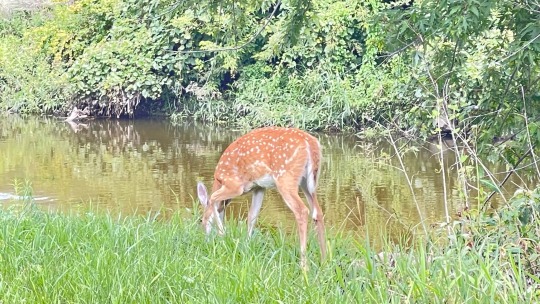




12 notes
·
View notes
Text
tag dissecting a fcs background:Hunkpapa Lakota Sioux, Hudeshabina Nakoda Sioux, Sissiton-Wahpeton Dakota Sioux
Me: jfc-
#[ out of character / salt ] i thrive best in it#[ ITS JUST SIOUX ]#[ i peeked into the Amber Midthunder tag -disgusting- again trying to see if a prey rper existed ]#[ the nar/u I mean cause again holding out hope ]#[ holding out hope someone comes along and talks to ME about the good stuff of prey that I am having a hard time seeing ]#[ lol and they have her listed as that ]#[ IM FROM THE RES SHES CLAIMING AND WE ARE NONE OF THESE ]#[ we are Yankton and Yanktonai ]#[ this just proves to me she’s faking ]#[ she’s distantly related to the Assiniboines here- not Sioux ]#[ even if she was from here she’s lying about which tribe and her exact relationship to our Rez ]#[ Goodness right when I wasn’t bitter on her and at peace with her something pEEVEs me ]#[ it’s not even her fault this time ]#[ wanahton ] what does it mean?
2 notes
·
View notes
Text

The Mysterious Deaths of Arnold Archambeau and Ruby Bruguier
Arnold Archambeau, a Yankton Sioux, was born in 1972 and raised on the reservation in Charles Mix County, South Dakota. Ruby Bruguier was born on January 11th, 1974, in Wagner, South Dakota. Being raised on the same reservation, Arnold and Ruby had known each other since childhood. They began dating in high school and soon fell in love. The couple went on to have one child together, a daughter named Erika Marie, in 1991. By the following year, the small family was residing with Arnold’s Aunt Karen.
Arnold and Ruby, both exhausted from caring for their baby, decided that they wanted to take a night off and go out partying on December 11th, 1992. Ruby’s uncle agreed to look after Erika while the two were out that night and Ruby’s 17-year-old cousin, Tracy, decided to join them. When the three returned early the next morning, Ruby’s uncle could tell right away that they were all intoxicated. He was uncomfortable with the idea of allowing Arnold and Ruby to take Erika home in their inebriated state, so he suggested that they leave and come back later when they’d sobered up. In the meantime, he’d keep the baby with him. For unknown reasons, Tracy decided to go with them rather than stay at her home.
Shortly before 7 a.m., they reached a stop sign at an intersection near Lake Andes, with Arnold behind the wheel. According to Tracy, he looked back and forth, said there was no one coming, and then started to pull out. It was at this point that they hit a patch of black ice and Arnold lost control of the vehicle, which flipped over and came to rest in a ditch next to the road.
Tracy’s recollection of what occurred afterward was hazy, but she said that the next thing she knew, Arnold was no longer in the vehicle, though she hadn’t seen him get out. Ruby, still in the passenger’s seat, was crying, “Oh my God! Oh my God!” and hitting the car in frustration. Somehow Ruby managed to get the door open just wide enough so that she could slip out. Tracy tried to do the same thing but “then just like that, the door went shut,” so she remained inside the car, confused as to why Arnold and Ruby had left her behind.
When the paramedics and police officers arrived that morning, they found only Tracy. She told them, to the best of her knowledge, what had happened, admitting that all three of them had been drunk. Authorities immediately began looking for the missing couple. Family members aided in the search as well, covering the same ground, over several weeks, but came up similarly empty-handed.
On March 10th, three months after Arnold and Ruby had vanished, a motorist made a gruesome discovery: a body floating in the ditch along Route 281, where the accident had occurred back in December. The body was so badly decomposed it could only be identified by sight from a distinctive tattoo. It was Ruby Bruguier. She was found approximately 75 feet away from the crash site.
Believing that Arnold was almost certainly in the same area, the authorities had the ditch drained and soon found Arnold’s body, under four feet of water and roughly 15 feet away from where Ruby’s remains had been discovered. His body was far less decomposed than hers and easily identifiable. While Ruby was still wearing the same clothing that she’d last been seen in, it couldn’t be confirmed that Arnold was still in the same outfit. Additionally, Ruby’s shoes and glasses were inexplicably missing.
Investigators found three mysterious keys in Arnold’s pockets—one for a car and two most likely for a house. Despite their efforts, authorities were never able to find either a car or a home in the area that matched the keys.
Upon examination of the remains, the Minnehaha County coroner concluded that neither one had been badly injured in the accident and that both had died of hypothermia. However, he couldn’t determine when Arnold and Ruby had died.
Despite the coroner’s ambiguous time of death, authorities believed Arnold and Ruby may have died elsewhere and been placed in the ditch later.
20 notes
·
View notes
Photo

Sioux Life Lessons: Iktomi and the Muskrat & Iktomi's Blanket
The Sioux stories known as Iktomi tales concern the trickster figure Iktomi (also known as Unktomi) who appears, variously, as a hero, sage, villain, clown, inept buffoon – or in other roles – but always serves to illustrate some important lesson or provide instruction in cultural values.
In White Plume, he is the villain who tries to steal the hero's identity, and in The Bound Children he is the sage mediating a dispute, but in Iktomi and the Muskrat and Iktomi's Blanket, given below, he is the buffoon who highlights the Sioux values of gratitude, keeping one's promises, and the importance of hospitality.
Other Iktomi tales, such as Iktomi and the Coyote and Unktomi and the Arrowheads present the character in other roles – as a fool who cannot tell the difference between life and death and as a helper and punisher of transgressors, respectively – but these tales, like the many others featuring Iktomi, all serve the same purpose of entertaining an audience while imparting some important life lesson.
Text
The two tales below come from American Indian Stories and Old Indian Legends by the Yankton Dakota Sioux activist and writer Zitkála-Šá (l. 1876-1938).
In Iktomi and the Muskrat, the value of hospitality is highlighted and, for the original audience, would have had special significance as the muskrat is sometimes featured in place of the otter in the Lakota Sioux Creation Story as the first of the animals to dive into the primordial waters to try to bring mud up to the surface to form dry land. The muskrat was therefore associated with creation and the Great Spirit and, because of this, symbolizes wealth, both spiritual greatness and material gain.
When Iktomi refuses hospitality to the muskrat, therefore, he is not just denying a fellow creature a place at his table, but is cheating himself out of whatever gifts he might have received in behaving properly. Further, since the muskrat is so closely associated with the Creator God, Iktomi is essentially insulting his maker to his face.
Iktomi's Blanket focuses on the value of gratitude and keeping one's promises. Inyan, the great-grandfather and gift giver, is one of the four primordial gods along with Han, Maka, and Skan, all aspects of Wakan Tanka – The Great Mystery – and so revered as sacred entities. Inyan is associated with stability, certainty, and dependability, and is symbolized by rock. When Iktomi asks for the gift of food, it is given; but Inyan is just as able to take as to give when the situation warrants, and, in this case, when Iktomi withdraws his gift of gratitude, Inyan responds in kind by taking back the food. Iktomi's effrontery in stealing back what was freely given would also have had a deeper meaning for an original audience in that Iktomi is not just taking unjustly from another but from a god.
Iktomi and the Muskrat
Beside a white lake, beneath a large grown willow tree, sat Iktomi on the bare ground. The heap of smoldering ashes told of a recent open fire. With ankles crossed together around a pot of soup, Iktomi bent over some delicious, boiled fish. Quickly he dipped his black horn spoon into the soup, for he was ravenous. Iktomi had no regular mealtimes. Often, when he was hungry, he went without food. Well-hidden between the lake and the wild rice that grew on its banks, he looked nowhere save into the pot of fish. Not knowing when the next meal would be, he meant to eat enough now to last some time.
"How now, my friend!" said a voice out of the wild rice. Iktomi jumped. He almost choked on his soup. He peered through the long reeds from where he sat with his long horn spoon in mid-air.
"Hello, my friend!" said the voice again, this time close at his side. Iktomi turned and there stood a dripping muskrat who had just come out of the lake.
"Oh, it is my friend who startled me. I wondered if among the wild rice some spirit voice was talking. Hello, my friend!" said Iktomi. The muskrat stood smiling. On his lips hung a ready "Yes, my friend," when Iktomi would ask, "My friend, will you sit down beside me and share my food?"
That was the custom of the plains people. Yet Iktomi sat silent. He hummed an old dance-song and beat gently on the edge of the pot with his buffalo-horn spoon. The muskrat began to feel awkward before such lack of hospitality and wished he had stayed underwater.
After many heart throbs Iktomi stopped drumming with his horn ladle, and looking upward into the muskrat's face he said, "My friend, let us run a race to see who shall win this pot of fish. If I win, I shall not need to share it with you. If you win, you shall have half of it." Springing to his feet, Iktomi began at once to tighten the belt about his waist.
"My friend Ikto, I cannot run a race with you! I am not a swift runner, and you are nimble as a deer. We shall not run any race together," answered the hungry muskrat.
For a moment Iktomi stood with a hand on his long protruding chin. His eyes were fixed on something in the air. The muskrat looked out of the corners of his eyes without moving his head. He watched the wily Iktomi concocting a plot.
"Yes, yes," said Iktomi, suddenly turning his gaze on the unwelcome visitor, "I shall carry a large stone on my back. That will slacken my usual speed, and the race will be a fair one." Saying this he laid a firm hand upon the muskrat's shoulder and started off along the edge of the lake.
When they reached the opposite side, Iktomi poked about in search of a heavy stone. He found one half-buried in the shallow water. Pulling it out on dry land, he wrapped it in his blanket.
"Now, my friend, you shall run on the left side of the lake, I on the other. The race is for the boiled fish in yonder kettle!" said Iktomi.
The muskrat helped to lift the heavy stone upon Iktomi's back. Then they parted. Each took a narrow path through the tall reeds fringing the shore. Iktomi found his load a heavy one. Perspiration hung like beads on his brow. His chest heaved hard and fast. He looked across the lake to see how far the muskrat had gone, but nowhere did he see any sign of him.
"Well, he is running low under the wild rice!" said he to himself. Yet as he scanned the tall grasses on the lake shore, he saw not one stir as if to make way for the runner. "Ah, has he gone so fast ahead that the disturbed grasses in his trail have quieted again?" exclaimed Iktomi. With that thought he quickly dropped the heavy stone. "No more of this!" he said, patting his chest with both hands.
Off with a springing bound, he ran swiftly toward the goal. Tufts of reeds and grass fell flat under his feet. Hardly had they raised their heads when Iktomi was many paces gone. Soon he reached the heap of cold ashes. Iktomi halted stiff as if he had struck an invisible cliff. His black eyes showed a ring of white about them as he stared at the empty ground. There was no pot of boiled fish! There was no muskrat in sight!
"Oh, if only I had shared my food like a real Dakota, I would not have lost it all! Why did I not know the muskrat would run through the water? He swims faster than I could ever run! That is what he has done. He has laughed at me for carrying a weight on my back while he shot hither like an arrow!" Crying thus to himself, Iktomi stepped to the water's brink. He stooped forward with a hand on each bent knee and peeped far into the deep water.
"There!" he exclaimed, "I see you, my friend, sitting with your ankles wrapped around my little pot of fish! My friend, I am hungry. Give me a bone!"
"Ha! Ha! Ha!" laughed the water-man, the muskrat. The sound did not rise up out of the lake, for it came down from overhead. With his hands still on his knees, Iktomi turned his face upward into the great willow tree. Opening wide his mouth he begged, "My friend, my friend, give me a bone to gnaw!"
"Ha! Ha!" laughed the muskrat, and leaning over the limb he sat upon, he let fall a small sharp bone that dropped right into Iktomi's throat. Iktomi almost choked before he could get it out. In the tree the muskrat sat laughing loud. "Next time, say to a visiting friend, ‘Be seated beside me, my friend. Please share my food.' Then perhaps you won't lose it all."
Iktomi's Blanket
Alone within his tepee sat Iktomi. The sun was but a hand's breadth from the western edge of land.
"Those, bad, bad gray wolves! They ate up all my nice fat ducks!" muttered he, rocking his body to and fro. He was cuddling the evil memory he bore those hungry wolves. At last, he ceased to sway his body backward and forward, but sat still and stiff as a stone image. "I'll go to Inyan, the great-grandfather, and pray for food!" he exclaimed.
At once he hurried forth from his tepee and, with his blanket over one shoulder, drew nigh to a huge rock on a hillside. With half-crouching, half-running strides, he fell upon Inyan with outspread hands.
"Grandfather! Pity me. I am hungry. I am starving. Give me food. Great-grand-father, give me meat to eat!" he cried. All the while he stroked and caressed the face of the great stone god.
The all-powerful Great Spirit, who makes the trees and grass, can hear the voice of those who pray in many varied ways. The hearing of Inyan, the large hard stone, was the one most sought after. He was the great-grandfather, for he had sat upon the hillside many, many seasons. He had seen the prairie put on a snow-white blanket and then change it for a bright green robe more than a thousand times. Still unaffected by the myriad moons he rested on the everlasting hill, listening to the prayers of Indian warriors. Before the finding of the magic arrow he had sat there.
Now, as Iktomi prayed and wept before the great-grandfather, the sky in the west was red like a glowing face. The sunset poured a soft mellow light on the huge gray stone and the solitary figure beside it. It was the smile of the Great Spirit upon the grandfather and the wayward child.
The prayer was heard. Iktomi knew it. "Now, Grandfather, accept my offering—it is all I have," said Iktomi as he spread his half-worn blanket upon Inyan's cold shoulders. Then Iktomi, happy with the smile of the sunset sky, followed a foot-path leading toward a thicketed ravine. He had not gone many paces into the shrubbery when before him lay a freshly killed deer!
"This is the answer from the red western sky!" cried Iktomi, with hands uplifted. Slipping a long thin blade from his belt, he cut large chunks of choice meat. Sharpening some willow sticks, he planted them around a woodpile he had ready to kindle. On these stakes he meant to roast the venison.
While he was briskly rubbing two long sticks to start a fire, the sun in the west fell out of the sky below the edge of land. Twilight was over all. Iktomi felt the cold night air on his bare neck and shoulders. "Ough!" he shivered as he wiped his knife on the grass. Tucking it in a beaded case hanging from his belt, Iktomi stood erect, looking about.
He shivered again. "Ough! Ah! I am cold. I wish I had my blanket!" whispered he, hovering over the pile of dry sticks and the sharp stakes round about it. Suddenly he paused and dropped his hands at his sides.
"The old great-grandfather does not feel the cold as I do. He does not need my old blanket as I do. I wish I had not given it to him. Oh! I think I'll run up there and take it back!" said he, pointing his long chin toward the large gray stone.
Iktomi had no need of his blanket in the warm sunshine, and it had been very easy to part with a thing that he could not miss. But the chilly night wind quite froze his ardent thank offering. Thus, running up the hillside, his teeth chattering all the way, he drew near to Inyan, the sacred symbol. Seizing one corner of the half-worn blanket, Iktomi pulled it off with a jerk.
"Give my blanket back, old Grandfather! You do not need it. I do!" This was very wrong, yet Iktomi did it, for his wit was not wisdom.
Drawing the blanket tight over his shoulders, he descended the hill with hurrying feet. He was soon upon the edge of the ravine. A young moon, like a bright bent bow, climbed up from the southwest horizon a little way into the sky. In this pale light Iktomi stood motionless as a ghost amid the thicket. His woodpile was not yet kindled. His pointed stakes were still bare as he had left them. But where was the deer—the venison he had felt warm in his hands a moment ago? It was gone. Only the dry rib bones lay on the ground like giant fingers. Iktomi was troubled.
At length, stooping over the white dried bones, he took hold of one and shook it. The bones rattled together at his touch. Iktomi let go his hold. He sprang back amazed. And though he wore a blanket his teeth chattered more than ever. Then, instead of being grieved that he had taken back his blanket, he cried aloud, "Hin-hin-hin! If only I had eaten the venison before going for my blanket!"
Those tears no longer moved the hand of the Generous Giver. They were selfish tears. The Great Spirit does not heed them ever.
Continue reading...
23 notes
·
View notes
Text
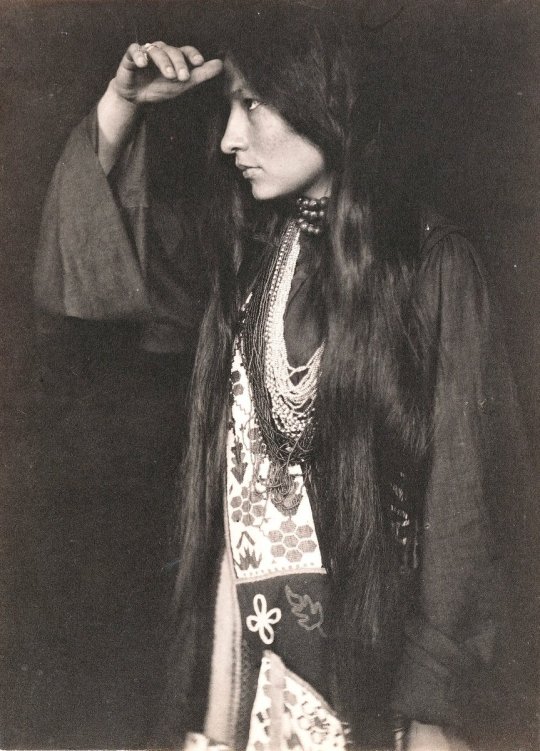
Gertrude Kasebier, Zitkala Sa, aka Red Bird, 1892. Red Bird was a writer, editor, musician, teacher, and political activist of Native American Yankton Sioux heritage.
25 notes
·
View notes
Text
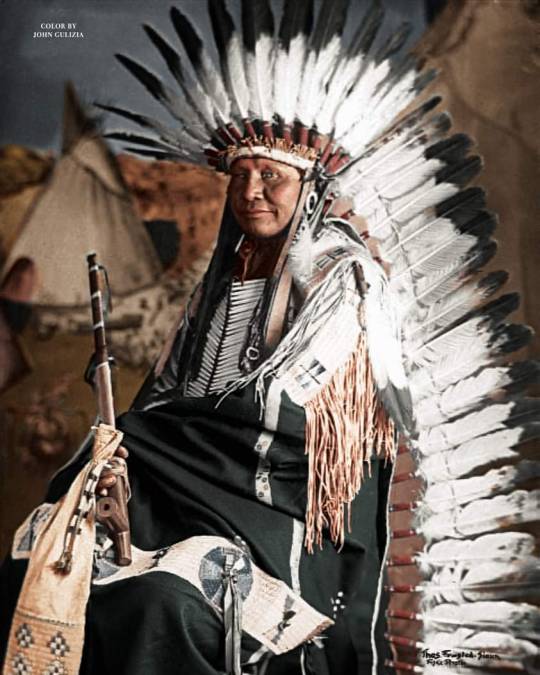
Chief White Bear. aka Tom Frosted. Lower Yanktonais at Standing Rock. Early 1900 ...
Yankton Sioux
93 notes
·
View notes
Note
Hello! I'm looking for FCs that can fit a character that is tough, gruff and seems like they would only respond in one word sentences. I'm open to any gender and ethnicity, just need some help finding FCs that fit the quiet but tough vibe. thank you in advance!
Eric Bogosian (1953) Armenian.
Emilio Rivera (1961) Mexican.
Michelle Yeoh (1962) Chinese Malaysian.
Benjamin Bratt (1963) Peruvian [Quechua] / White.
Ming Na Wen (1963) Macanese / Malaysian Chinese.
Peter Dinklage (1969) - has achondroplasia.
Park Hee Soon (1970) Korean.
Clemens Schick (1972)
Andrew Lincoln (1973)
Daniel Wu (1974) Hongkonger.
Omar Metwally (1974) Egyptian / Dutch - has spoken up for Palestine!
Ito Hideaki (1975) Japanese.
Pedro Pascal (1975) White Chilean.
Chaske Spencer (1975) Yankton Dakota Sioux, Sisseton-Wahpeton Dakota Sioux, Lakota Sioux Nakoda Sioux, Nez Perce, Cherokee, Muscogee, White.
Nonso Anozie (1978) Igbo Nigerian.
Natasha Lyonne (1979) Ashkenazi Jewish.
JD Pardo (1980) Argentinian / Salvadoran.
Krysten Ritter (1981)
Alberto Guerra (1981) Cuban.
Dichen Lachman (1982) Nepalese Tibetan / German, English, some Scottish.
Riz Ahmed (1982) Pakistani - has spoken up for Palestine!
Brian Tyree Henry (1982) African-American.
Son Suk Ku (1983) Korean.
Cara Gee (1983) Ojibwe
Clayton Cardenas (1984) Mexican, some Filipino.
Asia Kate Dillon (1984) Ashkenazi Jewish / Unspecified - non-binary and pansexual (they/them) - has spoken up for Palestine!
Richard Cabral (1984) Mexican.
Jessica Matten (1985) Red River Metis of Cree and Saulteaux descent, Chinese, White.
Martin Sensmeier (1985) Tlingit, Koyukon, Eyak, White.
Rahul Kohli (1985) Punjabi Indian - has spoken up for Palestine!
Oliver Jackson-Cohen (1986) Egyptian Jewish and Tunisian Jewish / English.
Sonoya Mizuno (1986) Japanese / English, Argentinian.
Monica Raymund (1986) Afro-Domincan / English, Ashkenazi Jewish -is bisexual.
Deepika Padukone (1986) Konkani Indian.
Kyle Gallner (1986)
Kali Reis (1986) Wampanoag, Nipmuc, Cherokee, Cape Verdean - is two-spirit (she/her) and queer.
Michaela Coel (1987) Ghanaian - is aromantic - doesn't have social media but in 2022 she boycotted an Isr*el-sponsored film festival!
Lewis Tan (1987) Chinese Singaporean / Irish, possibly English.
Rob Raco (1989)
Daniel Kaluuya (1989) Ugandan.
David Castañeda (1989) Mexican.
Úrsula Corberó (1989)
JuJu Chan (1989) Hongkonger.
Hannah John-Kamen (1989) Nigerian / Norwegian.
Assad Zaman (1990) Pakistani.
Kiowa Gordon (1990) Hualapai and White - has spoken up for Palestine!
Sarah Kameela Impey (1991) Indo-Guyanese / British.
Kasamatsu Sho (1992) Japanese.
Hari Nef (1992) Ashkenazi Jewish - is a trans woman - has spoken up for Palestine!
Kawennáhere Devery Jacobs (1993) Mohawk - is queer.
Freddy Carter (1993) - has spoken up for Palestine!
Alex Høgh Andersen (1994)
Gabriel Basso (1994)
Ayo Edebiri (1995) Afro Barbadian / Nigerian - is queer.
Ambika Mod (1995) Indian.
Emilio Sakraya (1996) Moroccan / Serbian.
Tati Gabrielle (1996) African-American, 1/4 Korean.
Archie Renaux (1997) Punjabi Indian and British.
Lizeth Selene (1999) Mexican [Unspecified Indigenous, Black, White] - is genderfluid and queer (she/they).
Zoe Terakes (2000) Greek Australian - is trans masc non-binary guy (they/he) - has spoken up for Palestine!
D’Pharaoh Woon-A-Tai (2001) Ojibwe, Cree, Chinese Guyanese, Afro Guyanese, White.
Here you go! If you /tagged/NAME search on my blog you'll find gif packs with the vibes and please let me know if you need more preferably with a specific age rage!
9 notes
·
View notes
Text
Ella Cara Deloria
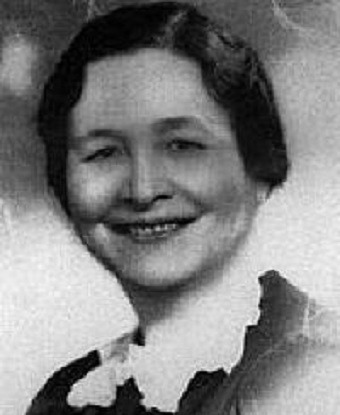
Ella Cara Deloria was born in 1889 on the Yankton Sioux Reservation in South Dakota. For 15 years, Deloria collaborated with Franz Boas, the "Father of American Anthropology", to translate indigenous languages in 19th-century texts and research the linguistics of native languages. She recorded numerous Lakota myths and sacred stories, and interviewed Sioux elders and tribal historians. Deloria also wrote a novel, Waterlily, which told the story of three generations of Lakota women before the reservation era. The novel was published posthumously in 1988.
Ella Cara Deloria died in 1971 at the age of 82.
13 notes
·
View notes
Photo

Zitkala-Sa photographed by Gertrude Käsebier, c.1900. Gertrude Simmons Bonnin (1876-1938), better known by her pen name, Zitkala-Sa (Dakota: translates to “Red Bird”), was a Yankton Dakota writer, editor, musician, teacher and political activist. Co-composed the first American Indian opera, The Sun Dance (composed in romantic style based on Ute and Sioux themes), 1913. Founded the National Council of American Indians in 1926.
44 notes
·
View notes
Text

We used to display Eagle Feathers here. To prioritize Native cultures, who honor Eagle Feathers as sacred, we have removed them from display. We are working to return them to their Tribe. Have any questions? Just ask us!
-Jlynn Del Real
#Blackfoot, Yankton, Santee Sioux
2 notes
·
View notes
Text




Zitkála-Šá, The Red Bird (1876 - 1938), was a Yankton Sioux Composer, Writer, Educator and Indigenous Rights Activist.
https://palianshow.wordpress.com/2021/11/26/zitkala-sa-red-bird/
Zitkála-Šá was born on Feb 22, 1876, on the Yankton Indian Reservation in South Dakota.
Mother: Ellen Simmons, whose Dakota name was Thaté Iyóhiwiŋ (Every Wind or Reaches for the Wind).
In 1884, when Zitkala-Ša was eight, missionaries came to the reservation. Zitkála-Šá attended the school for three years until 1887. She later wrote about this period in her work, The School Days of an Indian Girl.
She described the deep misery of having her heritage stripped away when she was forced to pray as a Quaker and to cut her traditionally long hair. By contrast, she took joy in learning to read and write, and to play the violin.
In 1891, wanting more education, Zitkála-Šá decided at age fifteen to return to school.
In June 1895, when Zitkála-Šá was awarded her diploma, she gave a speech on the inequality of women’s rights, which was praised highly by the local newspaper.
(3) In Utah, Zitkála-Šá met William F. Hanson, a composer and music professor at Brigham Young University. Together they composed The Sun Dance Opera. Zitkála-Šá wrote the songs and libretto based on Sioux ritual.
She was co-founder of the National Council of American Indians in 1926.
From Washington, Zitkála-Šá began lecturing nationwide on behalf of SAI to promote greater awareness of the cultural and tribal identity of Native Americans. In 1924 the Indian Citizenship Act was passed, granting US citizenship rights to most indigenous peoples who did not already have it.
Zitkála-Šá died on January 26, 1938, in Washington, D.C., at the age of sixty-one.
She is buried as Gertrude Simmons Bonnin.
#zitkalasa #ZitkálaŠá #YanktonSioux #Lakota #nativeamericanheritage #nativefeminist #GertrudeSimmonsBonnin #nativeheritageday #nativeherstory #redbird #zitkalasa #ZitkálaŠá #SimmonsBonnin #YanktonDakota #femalewriter #femaleauthor #femalecomposer #politicalactivist #culturalidentity #Dakotaculture #NativeAmericanstories #NativeAmericanActivist
3 notes
·
View notes
Photo

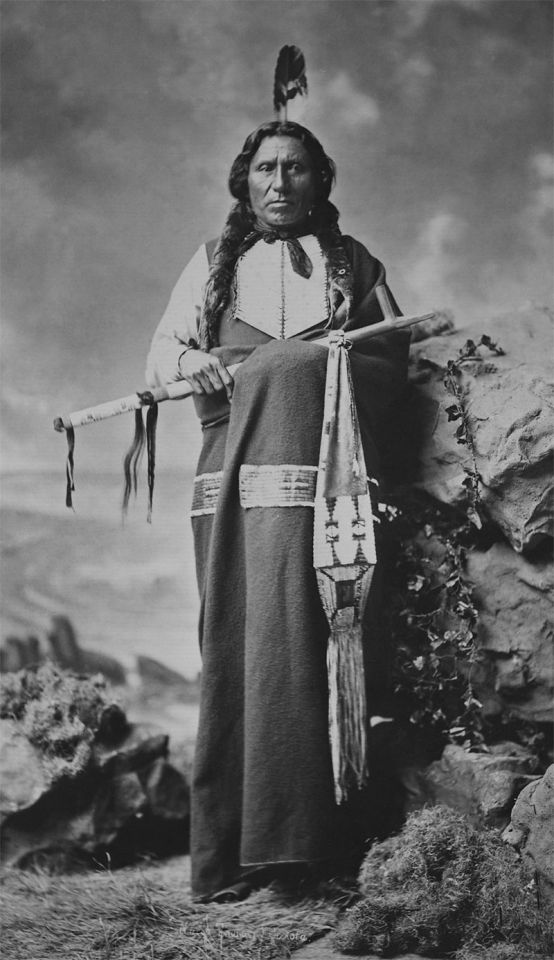
Dakota
The Dakota are a Native American tribe and First Nations band government in North America. They compose two of the three main subcultures of the Sioux people, and are typically divided into the Eastern Dakota and the Western Dakota.
The four bands of Eastern Dakota are the Bdewákaŋthuŋwaŋ, Waȟpéthuŋwaŋ, Waȟpékhute, and Sisíthuŋwaŋ and are sometimes referred to as the Santee (Isáŋyathi or Isáŋ-athi; "knife" + "encampment", "dwells at the place of knife flint"), who reside in the eastern Dakotas, central Minnesota and northern Iowa. They have federally recognized tribes established in several places.
The Western Dakota are the Yankton, and the Yanktonai (Iháŋktȟuŋwaŋ and Iháŋktȟuŋwaŋna; "Village-at-the-end" and "Little village-at-the-end"), who reside in the Upper Missouri River area. The Yankton-Yanktonai are collectively also referred to by the endonym Wičhíyena ("Those Who Speak Like Men"). They also have distinct federally recognized tribes. In the past the Western Dakota have been erroneously classified as Nakota, a branch of the Sioux who moved further west. The latter are now located in Montana and across the border in Canada, where they are known as Stoney.
https://en.wikipedia.org/wiki/Dakota_people
40 notes
·
View notes
Text
Pass the Pipe

You've probably heard the expression "pass the peace pipe." It might have been when two parties struck a compromise after previously being at an impasse. The phrase comes from early American settlers and soldiers who noticed Indigenous peoples smoking ceremonial pipes during treaty signings. They misunderstood this to mean pipe smoking symbolized peacemaking in Native American culture and hence the word "peace pipe" and phrases like "pass the peace pipe" came about.
But, like many conventional American ideas about the history and culture of Indigenous peoples, the term peace pipe is a misnomer, says Gabrielle Drapeau, an interpretive park ranger at Minnesota's Pipestone National Monument and an enrolled member of the Yankton Sioux Tribe of South Dakota. Tribal enrollment requirements preserve the unique character and traditions of each tribe. The tribes establish membership criteria based on shared customs, traditions, language and tribal blood.
Many Native Americans smoke pipes -- and not just in recognition of peace, but in ceremony and prayer as well as a way to connect with God. "So, don't use the term peace pipe," Drapeau says. "It's just pipe."
But these were -- and are still -- not just pipes. These artifacts, the tradition of pipe smoking and the ceremonies during which they are smoked hold far more significance for American Indian peoples across North America than the misnomer conveys.
A Short History of the Ceremonial Pipe
There is no singular word for these ceremonial pipes that spans all Native American cultures. The broad term often given to them is calumet, from the French word chalumet, which means reed or flute. Various tribes have their own unique names in their own languages. For example, the Lakota sacred pipe is called a chanunpa.
Ceremonial pipes have been a part of several Native American cultures for at least 5,000 years and are still used for ceremony and prayer. "I grew up this way. It's the only way I know how to pray," Drapeau says. "To me, it is like a physical representation of your connection to God."
The legends of how tribe elders first received pipes differ, too. According to Lakota legend, the first pipe was brought to Earth 19 generations ago by a divine messenger known as White Buffalo Calf Woman (known in the Lakota language as Pte-san Win-yan). The pipe was given to the people who would not forget -- the Oceti Sakowin, or Seven Council Fires of the Lakota, Dakota and Nakota nations. The Buffalo Calf Woman came to the tribes when there was a great famine and instructed them about living in balance with nature. She gifted the people with a sacred bundle containing the White Buffalo Calf Pipe, which still exists to this day and is kept by Chief Arvol Looking Horse of the Cheyenne River Sioux Tribe. Other members of the tribes are also pipe carriers: stewards entrusted with the care of particular ceremonial and personal pipes.
14 notes
·
View notes